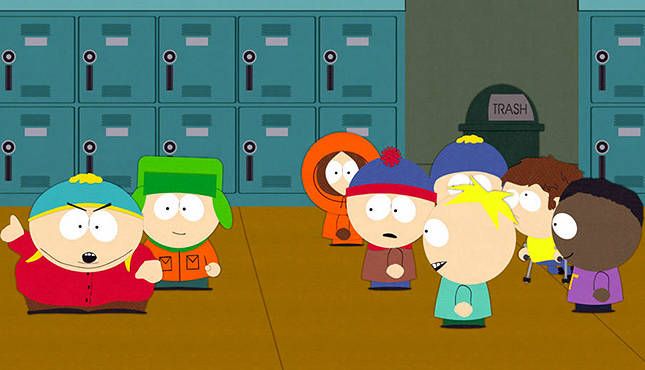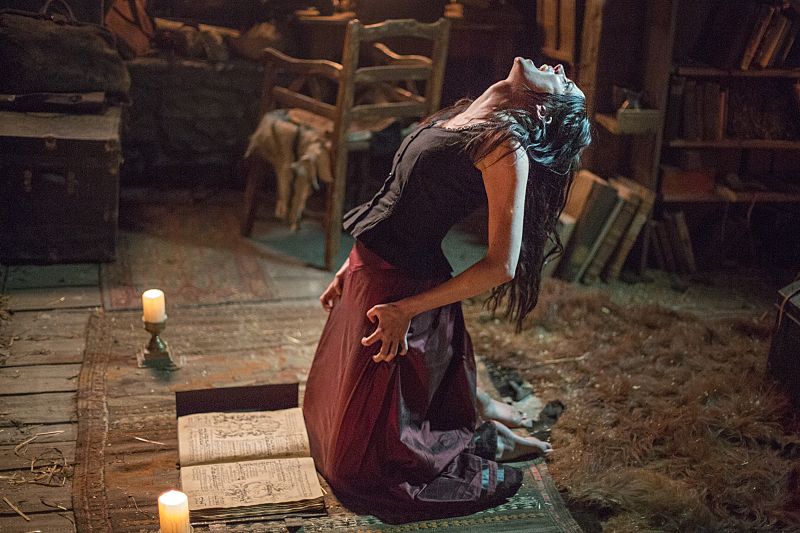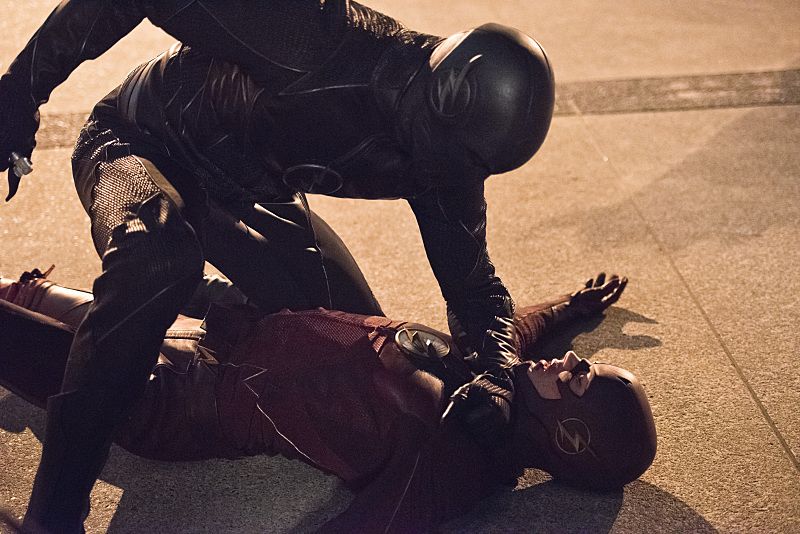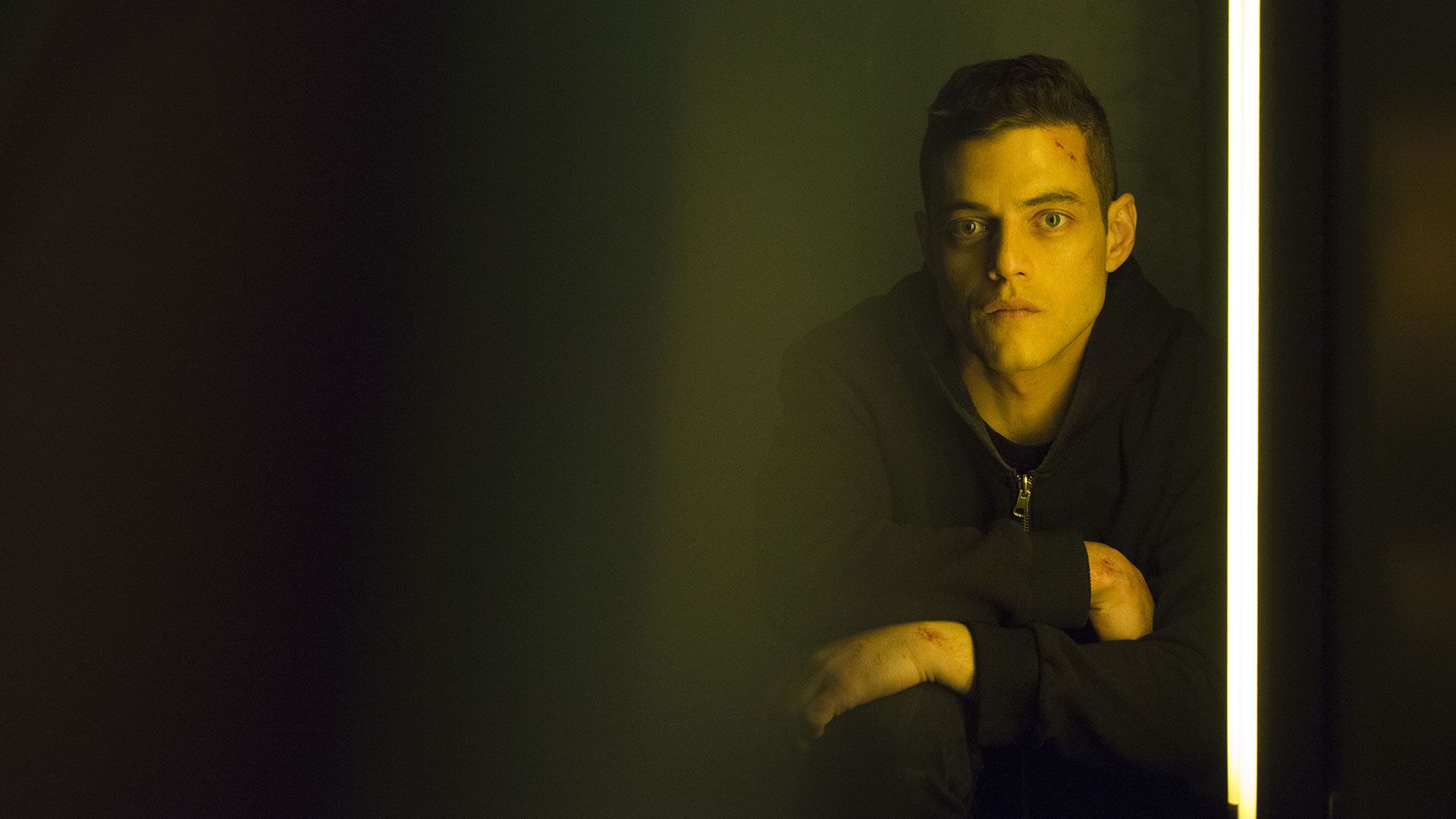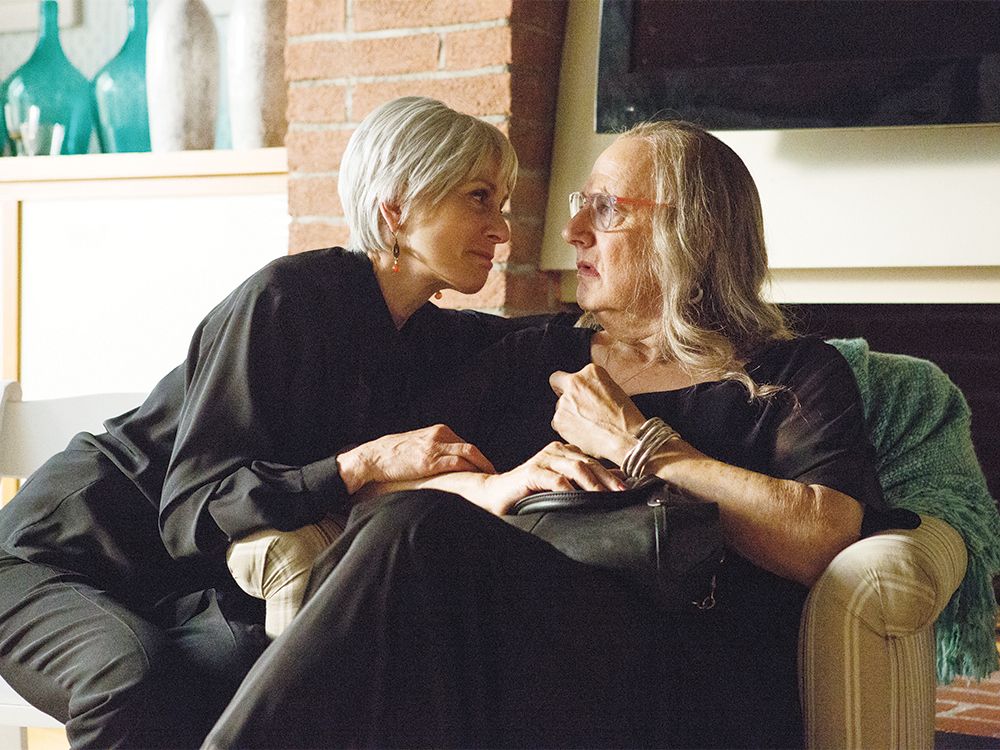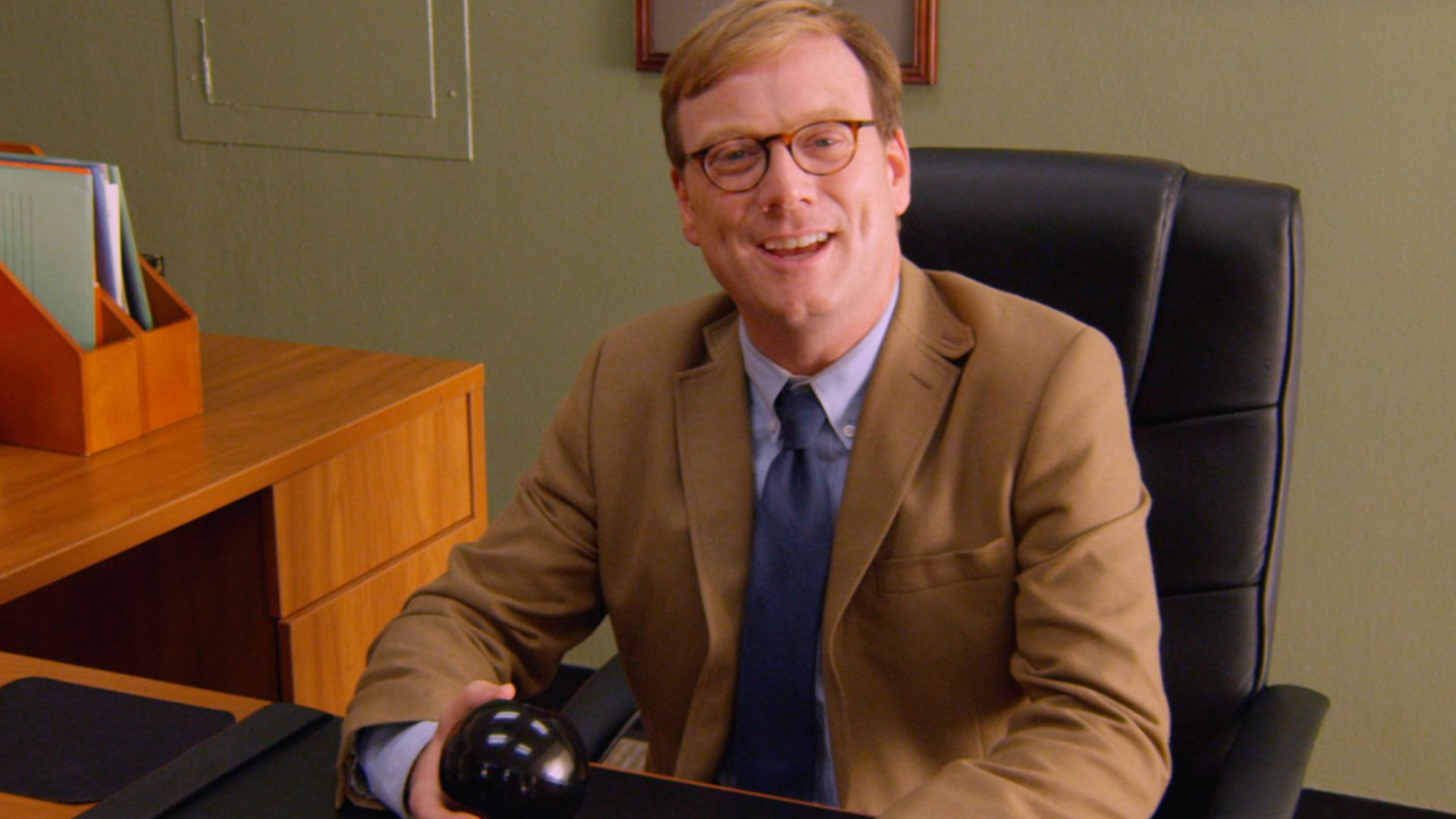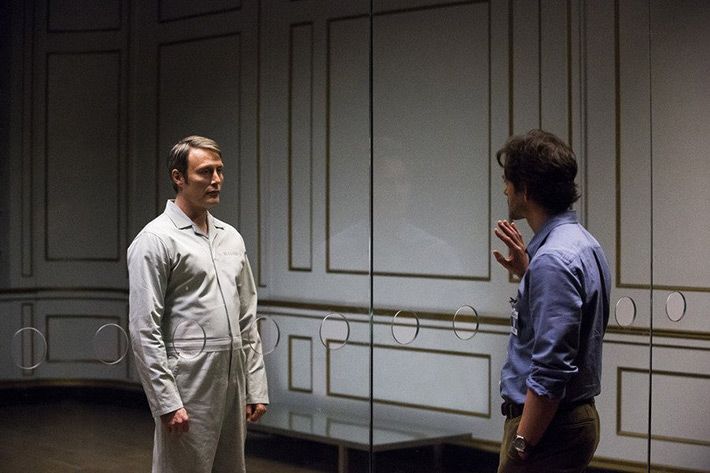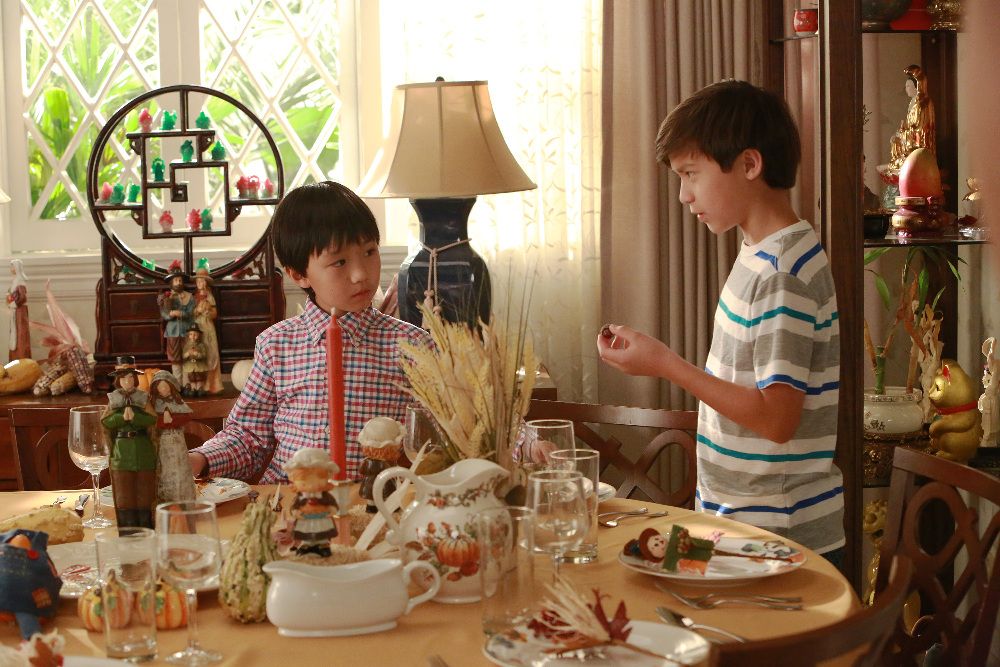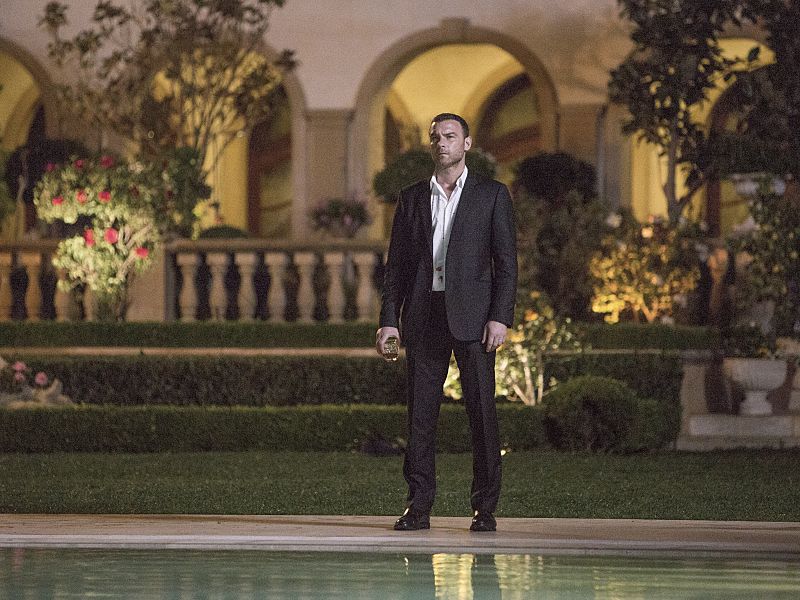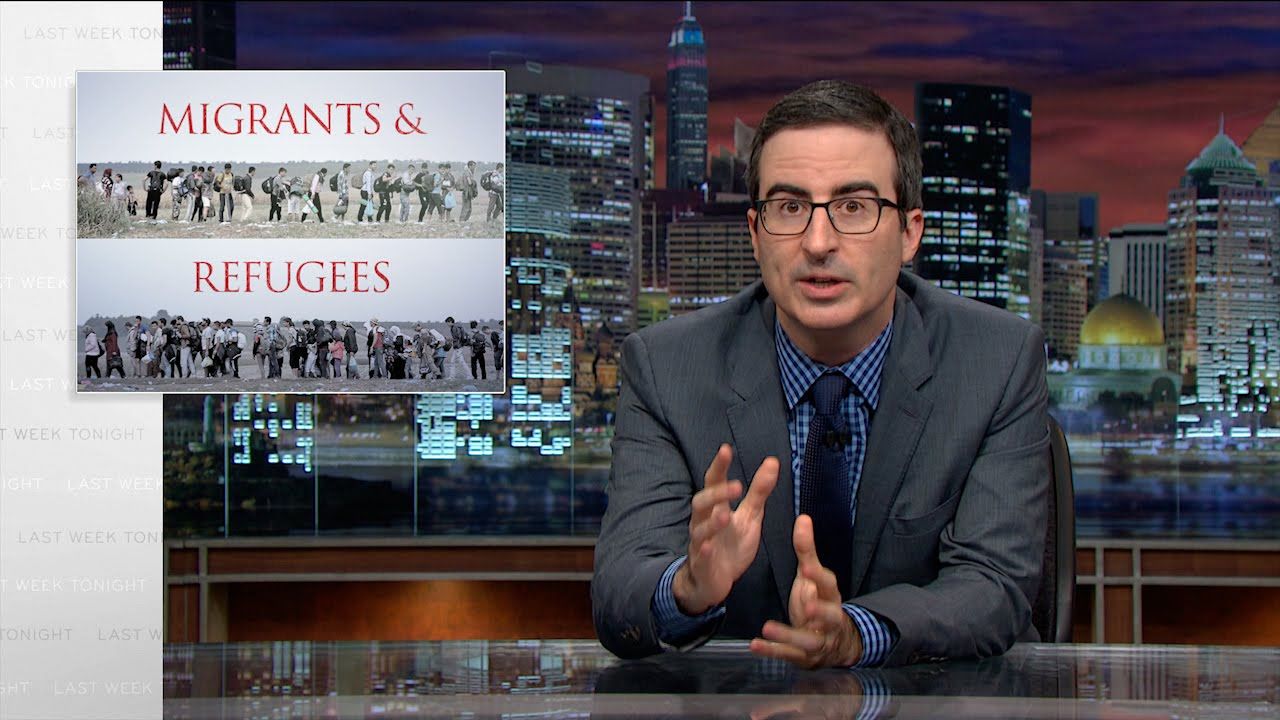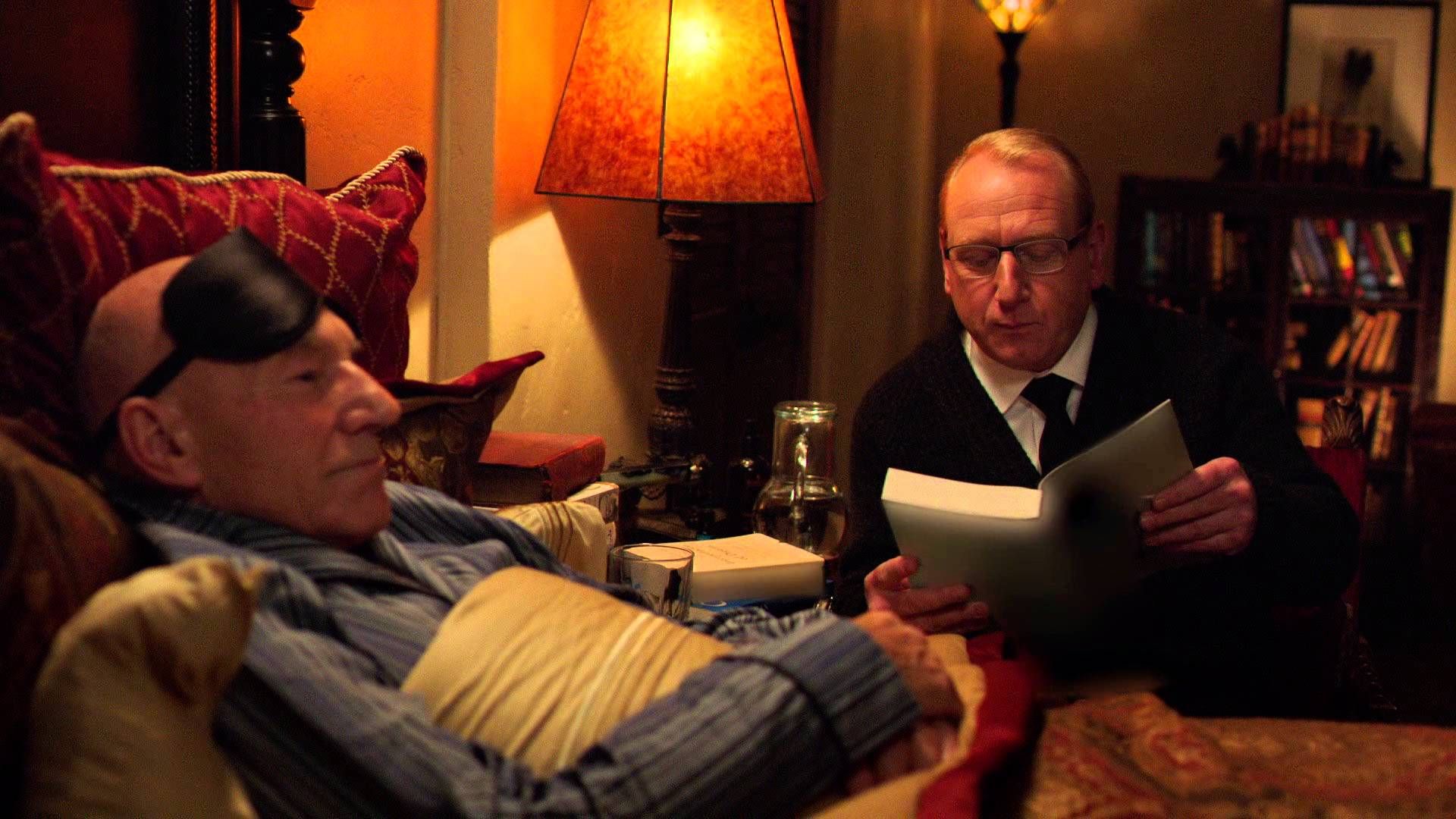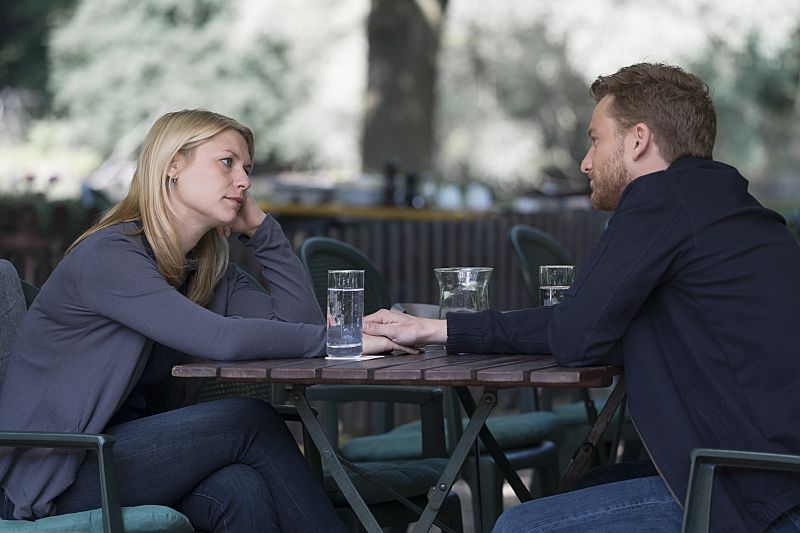Not unlike the making of lists for best films of any given year, the television and streaming releases that come in at the end of the year tend to wreak havoc on your picks. In the case of 2015, the second half of the year (starting in June) brought a long line of remarkable episodes of staggeringly provocative and insightful programs, from Marvel’s Jessica Jones and the second season of The Knick to Master of None and the sophomore season of Amazon’s Transparent. And that’s just the tip of the iceberg, considering that Homeland, BoJack Horseman, South Park, Fargo, The Walking Dead, and Ash vs. Evil Dead all had hugely entertaining and smart seasons in the second half of the year.
Seeing as TV Editor Allison Keene and I put together a list of our favorite episodes from the first half of the year, we figured it’d be only fair to do the same for the second half of the year. We ended up having to limit ourselves, as the list of episodes that at once encapsulated everything remarkable about the respective series and stuck out as uniquely wise, thrilling, or funny could fill up the front page of the New York Times. Each one of these shows brandished a fearless sense of aesthetics and stylized type of storytelling that offered perspectives that plumb the complications of artistic, political, or personal struggles, sometimes all three at once. The picks below teemed with the kind of visual flair, intimate detail, and narrative thoughtfulness that signal television and streaming’s continued strides to find television’s especial artistry.
Marvel’s Jessica Jones Season 1: “WWJD?”
Director: Simon Cellan Jones
Writer: Scott Reynolds
Though they square off several times throughout Jessica Jones (Krysten Ritter), the titular strongwoman and her nemesis, Kilgrave (David Tennant), don’t share a room for much time at all really until “WWJD?”, the eighth episode of the series. And once we get them together, it’s all fireworks or, to be more specific, psychological warfare of the kind that would make Shonda Rhimes blanch. The Purple Man’s proposal for Jessica and him to join forces is the core of the episode, but it’s chief fascination is with identity, who people are and who they pretend to be. This is the first time we begin to understand where Jessica came from, the tragedy that shook her life, but it’s also where the disturbing, intimate details of her relationship with Kilgrave; it’s the first time the word “rape” is boldly and directly used.
And yet, this is prime, exciting Marvel material with all the trimmings: witty, melodramatic dialogue, thoughtful action, stirring and sensitive thematic concerns, and big characters. As the title suggests, the episode ponders if Jessica can be altruistic, can be a role model of sacrifice for the greater good, and if that, in turn, could make Kilgrave a decent man. The answer, of course, is a defiant “no,” and one of the best elements of the series is that it never asks what would Jesus do, and is consistently fascinated by what would Jessica do. - CC
South Park Season 19: “Safe Space” and “You’re Not Yelping”
Director/Writer: Trey Parker
South Park’s transition to a season-long arc style of formatting in season 19 didn’t slow down their long streak of brash, crass comeid inventiveness and its unmerciful critical eye. In “Safe Space,” Trey Parker and Matt Stone argue that online commenters, as often as they are monstrous, petty, and cowardly, also reflect a very real part of social life that is dangerous and preposterous to overlook or ignore. To paraphrase a character, feeling bad for one’s self-obsession and fiscal comforts is not a purely bad thing, and there’s a similar feeling in “You’re Not Yelping,” which takes a generation of vanity and self-confirmed aficionados to task for their self-seriousness and power-hunger. Though their political concerns remain robust and complicated, what’s still so staggering about the series is its ability to remain so riotously funny and sharp in its critical eye, painting universal, uneasy political ideas with cultural nuances that are uniquely American and beholden to no fixed ideology. - CC
Penny Dreadful Season 2 Finale: “And They Were Enemies”
Director: Brian Kirk
Writer: John Logan
Penny Dreadful had a wonderful second season, but what still haunts me is the cacophony of its Season 2 finale. In it, all of the main players splintered off from one another, either having died or flung themselves to the farthest reaches of the Earth. Most importantly, though, it was triumphant for Vanessa Ives (Eva Green), who had to face a talking puppet of herself controlled by Satan. The stakes don’t really get much higher than that, or more baroque (as is Penny Dreadful’s wonderful wont). Characters reached their highest highs and lowest lows in this hour, all in a swirling, gothic, tantalizing, grim, insane story that was, without a doubt, one of the most memorable television episodes of the entire year. - AK
The Flash Season 2: “Enter Zoom”
Director: JJ Makaro
Writer: Gabrielle Stanton & Brooke Eikmeier
There aren't many episodes of television that make me yell at my screen, but this was one of them. It came down to this year’s exceptional villain, Zoom. “Enter Zoom” was part of a suite of episodes that reintroduced Harrison Wells (Tom Cavanagh) to the fold in a new capacity, while also allowing him to hand the villain torch over, as it were, from Reverse Flash to the less subversive but far scarier mystery-man of Zoom.
Though Barry (Grant Gustin) had been working on getting stronger and faster, it was evident almost immediately — thanks to an awesome effect where Zoom grabbed a lightning bolt and sent it back at Barry — that Zoom would not be easily defeated. As part of the horror, Zoom carried Barry’s limp body around town, shaking it like a puppet for all to see. After an exhilarating and horrifying episode, it ended on a devastating cliffhanger (quickly resolved in the next week) where Barry seemed to be paralyzed. Usually I praise The Flash for its humor and emotional resonance, but with “Enter Zoom,” it was all about the hero versus the villain (plus a Wells twist — they just keep coming!) and it was heart-pounding and incredibly entertaining to watch unfold. - AK
Mr. Robot Season 1: “eps1.3_da3m0ns.mp4”
Director: Nisha Ganatra
Writer: Adam Penn
In picking some of the best episodes of this half of the year, it’s easy to start with some of the very best shows. The trouble comes in narrowing it down to just one hour of exceptional storytelling. But “Daemons” was a great representation of everything that made Mr. Robot exceptional, from its narrative twists to its gorgeous cinematography to its emotional gut punches. Elliot’s (Rami Malek) hallucinations allowed for some brilliant moments, and looking back now at Mr. Robot (Christian Slater) and their relationship at the end of the season makes this episode resonate all the more.
But the episode was also an important turning point for Angela (Portia Doubleday), who was liberated from her connection with Ollie, and even briefly, her sexuality. “Daemons” also involved some wonderfully weird ideas to help Fsociety in their attempts to hack into Steel Mountain, and also looped in the Dark Army for the first time, whose connections to Mr. Robot’s world wouldn’t become clear until much later in the season. It was a bracing and beautiful episode that really encapsulates why Mr. Robot was one of the best and boldest series of the year. - AK
Transparent Season 2: “Man on the Land”
Director: Jill Soloway
Writer: Ali Liebegott
The great power of Transparent is that it doesn’t get hung up on the virtue of being bold or yourself, doesn’t think that the bravery of being open about your identity excuses the inevitable personal faults. The second season of the show is relentless in this thinking, but is never so piercingly upfront about the contentiousness of such feelings as in “Man on the Land.” Though Maura (Jeffrey Tambore) comes into contact with plenty of bigotry in her life, here, she finds herself in a place of seeming total acceptance – a music and art festival for women – and immediately identified as a man, and isolated for that reason.
Where her daughters find liberation – in feminist wisdom and sexual submissiveness, respectively – Maura find herself being judged by what’s between her legs, and nothing more really. It’s at once jarring in its isolationism and weirdly understandable, as Maura wishes to be rid of her former sexual identity and yet still bears the most recognizable symbol of masculinity. And yet, this is where Maura finds the spark of lust and love that she’s been seeking for so long, a sense of distinct connection in her re-discovered identity. As always with Jill Soloway’s lovely series, the glimmer of happiness the Pfefferman family seeks is only recognizable when they see their best selves and most disruptive actions clearly at the same time. - CC
Review Season 2: “Murder; Magic 8 Ball; Procrastination"
Director: Jeffrey Blitz
Writer: Rich Talarico
Andy Daly’s Review remains one of TV’s weirdest and greatest comedy series, largely because it’s often exceptionally dark. Though initially I wanted to go with ”Brawl; Blackmail; Glory Hole” as a great example of the show’s ability to shock coupled with Forrest’s (Daly) pathological need to put his show above everything else in his life (thus destroying his life), no episode had more of a lasting effect than “Murder; Magic 8 Ball; Procrastination.” It was absurd to the maximum, dealing with dark philosophical issues, bringing in a great amount of humor with the “veto box,” and then coming back around to murder in an unexpected way. No one could have guessed, even though the show had broached death before, that it could get so dark as it did here. The fallout, which continued through the rest of the season (another thing that sets Review apart among comedies), brought about another slew of great episodes, but they all stemmed from this turning point. One of the boldest episodes of the year. - AK
Hannibal Series Finale: "The Wrath of the Lamb"
Director: Michael Rymer
Writers: Bryan Fuller, Steve Lightfoot, Nick Antosca
Series creator Bryan Fuller designed Hannibal’s third season as the potential end for the series, although had it been picked up elsewhere there were definitely ideas in place for Season 4. Still, it’s hard to imagine a more gothic, fitting end for such an incredible show. It brought the Red Dragon (Richard Armitage) storyline to a close after one heck of a penultimate episode twist, but took its time in staging the final battle among Dolarhyde, Hannibal (Mads Mikkelsen), and Will Graham (Hugh Dancy), moving all of the pieces just-so. Each of these actors were magnificent in the final murderous crescendo, all set somewhat surprisingly (but masterfully) to Siouxsie Sioux.
What made Hannibal such a compelling series, really, was always the relationship between Hannibal and Will. It was more than a chess match, it was a mutual obsession that could only ever lead to death. But whose? And how? The final moments saw the two embrace, linger, and fall off of a cliff, which is just about the most romantic tragedy one could hope for to cap off the series. And yet the post-credits scene betrayed so much more: a dinner set for three, with only Bedelia Du Maurier (Gillian Anderson) present, feasting on her own flesh. A perfect conclusion full of mystery, decadence, and horror. - AK
Fresh Off the Boat Season 2: "Huangsgiving"
Director: Gail Mancuso
Writer: David Smithyman
Holiday-specific episodes for broadcast comedies can often feel forced and are often unfunny, but the opposite was true of “Huangsgiving,” which was one of the funniest episodes of the year in an already delightfully clever series. Though Fresh Off the Boat has excelled in Season 2 (including a particularly funny riff on 90s dating and the roll of malls and passing notes), “Huangsgiving” fired on every cylinder. From the revival of Jessica’s (Constance Wu) rivalry with her sister, to Emery (Forrest Wheeler) and Evan (Ian Chen) flipping out over decorations, to the reintroduction of Oscar Chow (Rex Lee) and his partner, who bored everyone with “I heard this story on NPR about almonds …” (that one hit a little too close to home), “Huangsgiving” was jam-packed with wit and laugh-out-loud humor, and perfect comedic timing. Ray Wise breaking out into vintage football attire and Eddie (Hudson Yang) appreciating grunge in order to bond with his cousin (now a lover of ska: “it’s like chasing the wind with this one …”) was all gravy. - AK
Ray Donovan Season 3: "All Must Be Loved"
Ray Donovan is a show that keeps getting better with every season, and it hit its highest point with “All Must Be Loved.” The show is always at its best when it settles in as a family drama, and this episode in particular was filled to the brim with the Donovans having one reckoning after another. Even Ray (Liev Schreiber) was pushed to the brink regarding his hidden history of abuse, starting off with a confession, and ending with excommunication. But it also had some beautiful, quiet moments like when Terry (Eddie Marsan) comes to terms with the fact that he can’t live alone anymore, and Abby (Paula Malcomson) offers to take him in. It’s also an episode that pivoted on violence — a certainty whenever Mickey (Jon Voight) is involved. That violence also caused sweet Bunchy (Dash Mihok) to take up arms in order to save his father and his half-brother Daryll (Pooch Hall). I wrote more extensively about the episode and its implications here, but the bottom line is that “All Must Be Loved” was a great episode that truly got to the emotional core of Ray Donovan. - AK
Last Week Tonight with John Oliver: “Migrants & Refugees”
In the game of timeliness, no series or episode of television in 2015 had it over on John Oliver’s examination of the Syrian refugee crisis. Not only did Oliver frankly and hilariously strip the idea that refugees are religiously or politically dangerous of any legitimacy, he articulated, with his customary wit, insight, and anger, that refugees and migrants are actually very good for the economies and the societal make-up of the countries that take them in. Hungary does not come out looking well at all, nor does any of the anti-immigration contingency, but crucially, Oliver attends to all of their concerns before dispelling them with hard-to-refute evidence, lest racism figures into your argument. The show punctuates all of this with a heartfelt tribute to one of the more admirable and hopeful refugees found in this mishigas, but also makes time for Oliver to indulge in one of his more personal feuds, as the host has a giddy, uproarious look at David Cameron’s, er, pig issue before the “Migrants & Refugees” story. In a year of home runs for the already classic HBO program, this was the one that seemed to encapsulate everything from political correctives and humanistic curiosity to personal grievances and outlandish perversity. - CC
Master of None Season 1: “Indians on TV”
Director: Eric Wareheim
Writers: Aziz Ansari, Alan Yang
There haven’t been many series on TV that have been at once so breezy and challenging as Master of None; black-ish is its closest cousin. Amongst its myriad thematic concerns, such as age, sex, and dating, race is its most consistently provocative, and its plumbed with a rare wit and thoughtfulness in “Indians on TV,” wherein Aziz Ansari’s Dev finds himself out of a role for reasons related directly to his race. The mechanics, as well as the feelings, that Ansari expresses here feel nuanced and authentic, and the entire episode hums with personal experience. When Dev gets the chance to face a crudely ambivalent kind of racism, he’s given an at once unsatisfying and deeply believable answer, and Ansari doesn’t try to explain it beyond insensitive stupidity, greed, and callousness. And when he speaks with Busta Rhymes about the situation, Dev is given a quietly devastating yet hugely pragmatic answer, and the show that Ansari has fashioned is similarly practical and bittersweet in ways that brush aside easy answers and erroneous sentimentality. - CC
Blunt Talk Season 1: “I Brought a Petting Goat!”
Director: Tristram Shapeero
Writer: Jonathan Ames
Jonathan Ames’ weird little Starz comedy Blunt Talk, led by the indomitable Patrick Stewart as TV newsman Walter Blunt, took a little getting used to. But by the time Season 1’s penultimate episode, “I Brought a Petting Goat!” rolled around, it was really hitting its stride. A party that Walter throws in honor of the anniversary of the end of the Falklands War was an opportunity to show the series at its very best, from a variety of angles. Not only were there references to Burt Lancaster, Once and Future King, and (unexpectedly) genital mutilation, there was also an incredible amount of humor and tenderness from the cast. Walter and Harry (Adrian Scarborough) come to an understanding about the past, Jim (Timm Sharp) and Celia (Dolly Wells) shared several wonderful moments, and Rosalie (Jacki Weaver) admitted her real feelings towards Martin (Karan Soni), each in a uniquely sweet way. But it was also the way the camera moved around the party, with a choreography that felt, at times, like The Knick. There was a beautiful visual and narrative flow to the whole event, with Walter presiding over all of it in a way that felt, for him, far more mature than usual, and even triumphant. Though the night didn’t end with any “eroticism” for him, it did give him peace and clarity, and could have even ended the series on a wonderful note. (But it will be back for Season 2). - AK
Honorable Mentions
The Affair Season 2, “Episode 9”
Homeland Season 5, “Why Is This Night Different?”
The Knick Season 2, “"There Are Rules”
Fargo Season 2 "Did you do this? No, you did it!”, "Loplop" (really all of them)
Last Man on Earth Season 2, "Silent Night"
black-ish Season 2, “"Churched”, "Jacked o' Lantern"




